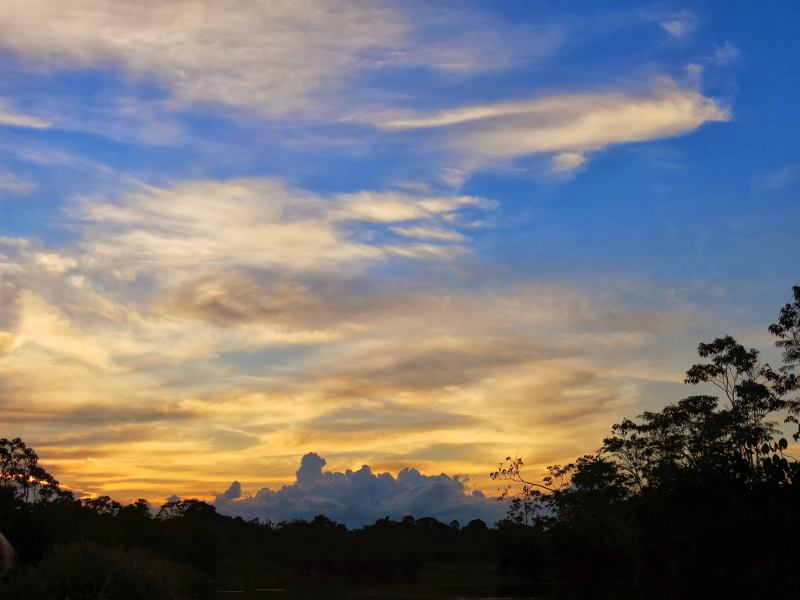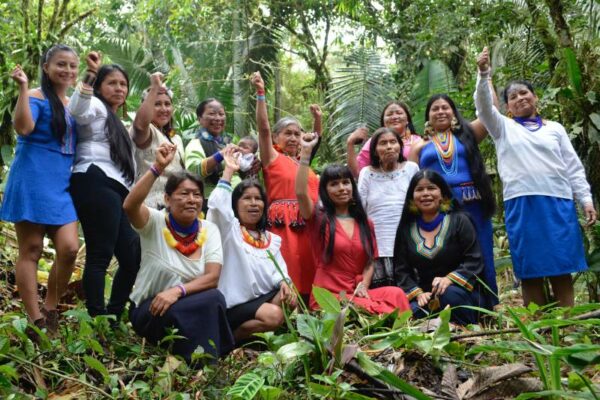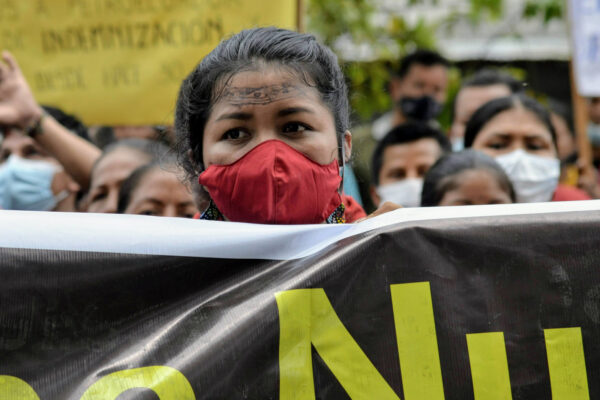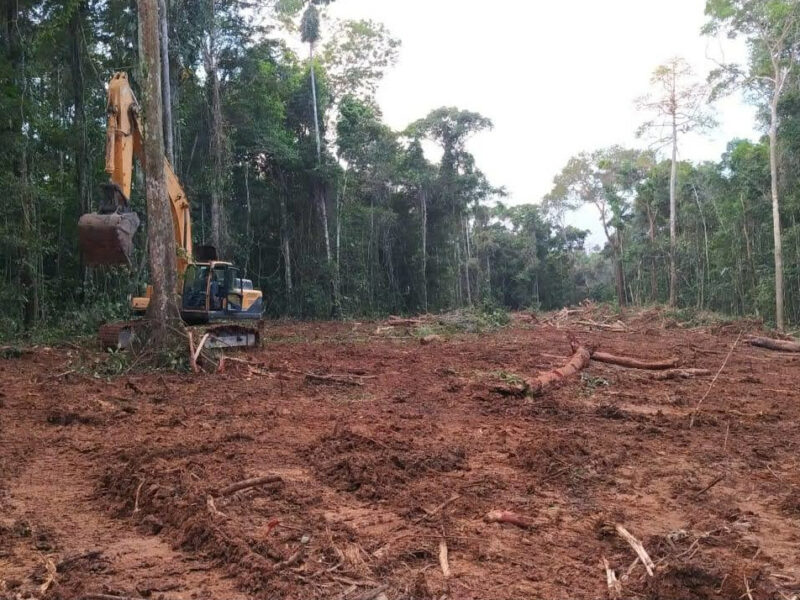
Ecuador has started drilling for oil on the edge of a controversial block of pristine rainforest inhabited by two of the last tribes in the world living in voluntary isolation.
The well platform known as Tiputini C, which is now operational a few kilometres from the Peruvian border in the Yasuni national park, is expected to be the first of nearly 200 wells needed to extract the 920m barrels of crude thought to lie below the Ishpingo Tambococha Tiputini (ITT) block.
The Tiputini field is just outside the ITT zone which the government has ordered oil companies to leave untouched. But indigenous people, rainforest campaigners and many Ecuadoreans said this week that they expect oil exploitation in Yasuni national park to lead to pollution, forest destruction and the decimation of the nomadic Tagaeri and the Taromenane tribes who have chosen to have no contact with the outside world.
The government’s ministry of strategic sectors said that the state oil company, PetroAmazonas, would be using directional and horizontal drilling which would meet high international standards.
The first oil is expected to flow by the end of 2016. “We are optimising costs and increasing production areas with better prospects,” said minister Rafael Poveda.
Ecuador’s decision to allow oil companies to drill the ITT block, which contains around 30% of the country’s remaining reserves, has been hotly disputed since 2007 when the new Rafael Correa government pledged to permanently keep the oil underground in exchange for around $3.6bn from the international community. The “Yasuni initiative” was administered by the UN and hailed as one of the world’s most innovative conservation proposals.
But in August 2013, President Correa withdrew the proposal saying the pledges received from countries were minimal and that Ecuador had been failed by the international community.
He argued that Ecuador, which has been devastated by oil pollution in the 1970s by US oil firms, had no option but to exploit the ITT oil to pay for poverty relief.
Correa’s change of mind led to demonstrations, the emergence of a political movement known as Yasunidos and a hotly-debated petition which failed to reach the threshold to trigger a national referendum.
Ecuador is the first country in the world to include the rights of nature in its constitution and until the Yasuni controversy it was considered one of the most environmentally-progressive countries. To reduce criticism, Correa promised that only 1/1000th of the area of the Yasuni park would be exploited and the best available technology would be used to reduce pollution.
But many indigenous leaders and conservationists remain angry. “By drilling Yasuní-ITT, the Ecuadorian government is threatening to destroy one of the most biodiverse and culturally fragile treasures on the planet for what amounts to about a week of global oil supply,” said Amazon Watch’s director, Leila Salazar-Lopez.
“Why such urgency to exploit the Yasuni-ITT with an adverse oil market?” she said.
Alicia Cahuiya, the vice-president of the Waorani people in Ecuador who has received death threats for opposing oil exploitation in Yasuni, said Ecuador was not protecting isolated peoples.
“If they are going to protect them, they can no longer construct more roads or oil wells … The state must, as they say, ensure and protect the [isolated indigenous] Taromenane. As Waorani we ask that they keep their territory. No more exploitation there. No more taking down our trees,” she said.
Because of its location right on the equator at the junction of the forest and the mountains, Yasuní is one of the most biodiverse places on Earth. The park is thought to have more species of plants, animals and insects per hectare than anywhere else.
Kelly Swing, director of the Tiputini biodiversity research centre on the edge of the Yasuni park, said drilling made no sense. “As a new wave of oil operations push into the last remaining corners of the Yasuni, we are appalled. Ecuador is now losing around $15 per barrel but continues to expand [oil] operations under the pretext that prices are about to soar again while countries like Iran are flooding the world market with more product every day.”
In a separate development, Ecuador’s government earlier this year sold oil exploration rights on 500,000 acres of forest adjoining the Yasuni park to a consortium of Chinese state-owned oil companies.
Andes Petroleum Ecuador paid about $80m, according to the research firm Energy Intelligence.













